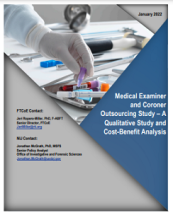Complex Drug Mixtures Analysis, Using Open-Source Search Software and Library Building Tool
Date Published
June 2022
Agencies
NIJ
Publication Type
Research (Applied/Empirical)




